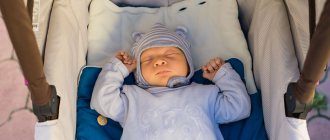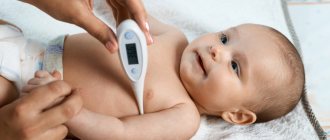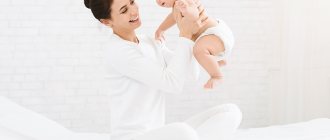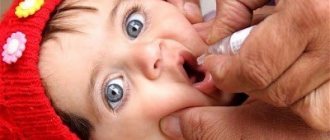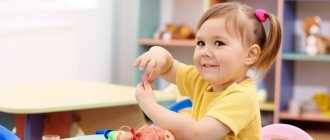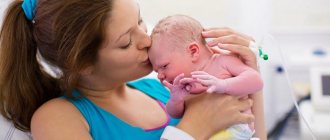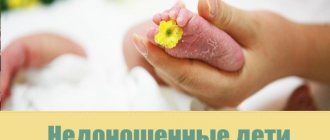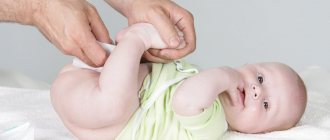Daily regime
Every person must maintain the correct daily routine. This has a positive effect on willpower and discipline. From an early age, you need to accustom your child to a daily routine. Typically it looks like this:
- Get up no later than 7 am;
- Dedicate 10-15 minutes to gymnastics, shower;
- Eating. You need to eat a couple of hours before the start of physical training and half an hour after its completion. Have dinner no later than 2 hours before bedtime. You should eat 4-5 times a day. Eliminate too fatty and salty foods from your diet, control your consumption of sweets;
- School assignments must be completed at the same time, remembering to take breaks every 40 minutes;
- School-age children should help clean the house;
- In your free time, you need to walk in the fresh air, read books or engage in your hobbies;
- Before going to bed, do not sit for a long time in front of the computer or TV. Young children (9-11 years old) need 10 hours of sleep.
We protect children from mosquitoes from 0 to 4 years
Summer comes to us with beautiful weather and gives us the opportunity to spend more time outdoors. But there is a “summer” problem that worries most dads and moms - mosquitoes.
In stores you will find a lot of products and devices that offer relief from this scourge. Let's list them.
Modern means:
- Pencils and ointments. They are safe for the respiratory tract, applied only to open areas of the body, and are convenient to take with you.
- Creams and gels. Without penetrating deep into the skin, they create an invisible layer of protection against harmful insects. They usually have a pleasant smell. They can combine several beneficial properties, such as sun protection and moisturizing.
- Lotions. More suitable for use on clothing and strollers than on skin due to its liquid base.
- Soaked wipes. It is convenient to take with you on the road and wipe only open areas of the face and body with them.
- Aerosols. They contain a higher concentration of the substance, but often have a pungent odor and are dangerous for inhalation. It is better to spray the stroller during a walk or the parents’ clothes with this product.
Never ignore the manufacturers' recommendations on the packaging. Any inscriptions, including “0+”, are a reason to consult a pediatrician. Remember that the age under 3 years is extremely sensitive, and the choice of any baby care products must be treated very responsibly and thoughtfully.
How to use
If you choose a product for application to skin or clothing, it is better to first test for the tolerance of the substances included in the composition by treating a small area of the baby’s skin. In any case, always try to apply more product to the clothes and objects surrounding the child than to his skin. Do not allow the product to come into contact with abrasions and scratches, as well as mucous membranes. You should not treat the child's face and hands, because he may pull his hands into his mouth or start rubbing his eyes. Check how many times a day you can use a particular product. And be sure to thoroughly wash off applied creams, gels, aerosols and other “anti-mosquito products” after a walk, using baby soap.
Favorable climate in the house
The room should always be ventilated to keep the air cool and fresh. The air temperature for an undressed baby should be +22…+23 degrees. For slightly older children it may be a couple of degrees less. During sleep, the room should be +19 degrees.
It is also important to take care of a sufficient level of air humidity (45-60%).
Baby hygiene
It is important for parents to observe rhythm and cyclicity. The day must be planned from beginning to end. This way the baby will be more comfortable and gradually he will begin to learn the sequence of actions.
From the very morning there is a toilet. It is done before the 1st or 2nd feeding. It includes care for the eyes, nose, ears, and body. The eyes need to be wiped from the outer edge to the inner. To care for the nasal cavity, you need to use flagella. It is forbidden to use cotton swabs to perform the toilet, as they are quite wide and can harm the mucous membrane. Flagella are also used to clean ears.
Hygiene of preschool children
Healthy sleep, good nutrition, bathing, avoidance of childhood bad habits (for example, putting fingers in mouth, rubbing eyes) and much more regarding hygiene are very important.
Daily regime
It is better to configure the mode so that it does not fail. What this means is that you need to follow the same sequence of actions every day. This does not apply to the baby’s life as a whole, but to its main components, which cannot be avoided.
The first and most important thing where it all starts is eating at certain times. When the feeding schedule is established, the baby is taught to wash his hands. We must not forget about observing this rule, because in the future the regime will be based on the habit of conforming to the usual harmony.
As for hygiene, daytime naps should be accompanied by a preliminary trip to the potty. After using the toilet, they always wash their hands. This applies not only to adults, but also to children, even if they have not touched the potty or underwear.
In the evening the children wash themselves. After feeding, they play, then go to the bathroom and brush their teeth. Do not forget that you need to dry yourself with a towel after each contact with water.
Important! Children often lick their fingers, touch their nose with them, and rub their eyes. It is necessary to constantly explain that this cannot be done, and also voice the reason - you can get sick.
As a rule, preschool children go to bed at 21:00-22:00 and wake up at 07:00-08:00. Daytime sleep lasts 2-3 hours from 13:00 to 15:00. If we are talking about one-year-old children and newborns, the sleep and nutrition patterns are different.
Photo source: https://www.shutterstock.com/
Washing
You need to wash your face correctly - wash your hands thoroughly, and then massage the skin of your face and the top of your neck in a circular motion. Show how to make water not flow over the body, but drip into the sink.
Hygiene rules for caring for children's skin are simple:
- Before washing, be sure to wash your hands and then rinse off the soap with water. This will avoid a situation where the dirt that was on your hands ends up on your face and mucous membranes.
- You need to wash your hands for at least a minute, and then just wash your face.
- Before washing, you need to re-soap your hands or apply a special product.
- The steps for washing are simple - you need to move your fingertips in a circle towards the outside. If your baby doesn't succeed, help them understand the direction of movement by nudging their fingers.
- After washing, the baby thoroughly rinses off the foam with water.
The next step is brushing your teeth.
Bathing procedure
Bathing is an essential procedure for maintaining hygiene. Some people think that a baby gets very tired if he is bathed every day, and he doesn't get dirty enough to take a bath every day. If you care about your child’s health, then you need to bathe him once a day. You need to use soap 3-4 times a week, on other days it’s enough to just bathe in water at a temperature of 36-37 degrees. Bath for 7-10 minutes. If you have skin problems, you can add medicinal herbs to the bath.
It is better to bathe your baby in a regular bath where adults wash. There is much more space and the child can move freely.
The baby's head should be on the adult's forearm. First, wiring is done on the back, and then on the stomach.
When your child starts using the potty, he needs to be taught to wash his hands after using the potty. He should also wash his hands after going outside and before eating.
Hygiene and child health
Nadezhda Kuzmicheva Gorevaya
Hygiene and child health
Understanding the world around us is the most important task for children. The main task of creating the right daily routine for a child is healthy sleep, timely meals and necessary rest during lunch and night time. If the required regimen is not followed, you may notice that the child feels unwell, lethargic, tired, and in the future the child may get sick. While the child is exploring the world, he may forget about the rules of personal hygiene, and we have to remind the baby of such simple but important rules. Children need to learn them in order to grow up confident, healthy and easier to find a common language with others. A child should be proud of his cleanliness and neatness. This will make him feel independent and increase self-esteem.
Why is it important to practice good hygiene?
“You must, you must wash your face in the mornings and evenings!” - Probably everyone remembers these lines from Chukovsky’s children’s poem “Moidodyr”. And many understand that it can be difficult to teach children to observe basic rules of personal hygiene. Your child will learn the rules of personal hygiene most quickly if you present them as a game and show them by example. In order for your child to enjoy following the rules, you must first tell him why it is so important to follow them.
Rules of personal hygiene and child health.
1) Rule. "Hands"
You must wash your hands after leaving the toilet. (If you have pets in your home, make sure your baby also washes his hands after touching them.) Teach your child to wash his hands properly, not just rinse them without using soap, explain that you need to take soap, wash your hands, and then dry them wipe with a towel. Explain to your child that these same rules must be followed in public places.
Also, it is extremely undesirable to frequently touch your nose with your hands and you should not scratch your eyes with dirty hands. Thus, bacteria enter the mucous membrane of the nose and eyes and there is a risk of disease. Make sure you always have a handkerchief in your child's jacket pocket. This way, when the baby sneezes or coughs, he will cover his mouth and the infection will not spread further through the air. Doctors say that the best way for a child to have personal hygiene is to wash their hands frequently. The baby needs to wash his hands for a minute, then rinse, only in this case it will be beneficial.
2) Rule “Teeth”
Teach your child to brush their teeth properly. This should be taught to a child from the age of two. Explain to your child:
-that the brush must be washed before and after brushing your teeth.
- that his teeth need to be brushed 2 times a day, after he has eaten, because the remaining food eats away his milk teeth, which leads to the formation of caries. (If your child decides to have a snack somewhere, tell him to at least rinse his mouth.)
3) Rule “Neat appearance”.
Teach your baby to comb his hair, because this is also a hygienic norm for every person.
Timely trimming of nails is considered the key to a child’s health. You must provide your child with individual personal care items. The baby should have his own towel, toothbrush, soap, comb. Teach your child to take a shower on his own; at first, of course, it will be a very small stream of water, but this is only in the first attempts. Gradually, the child will learn to take care of himself independently, without outside help. Choose a shampoo for your baby that does not cause tears. Buy your child a robe. Individual slippers and washcloths are required. Provide your baby with a brightly colored towel. This will make it more enjoyable for your child to use and he will get used to it faster.
Keep an eye on your child’s health, because health is the key to the good health and mood of the baby and his parents.
Dental care
The child should see from the example of adults how to brush their teeth properly. When your baby's teeth begin to emerge (at the age of six months), they need to be wiped with a napkin to remove plaque. When your child is already 2 years old, you can teach him to brush his teeth 2 times a day. Until the age of 4, fluoride should not be present in toothpaste. The toothbrush should also be age appropriate. After eating, it will not be superfluous to rinse your mouth. Giving apples and cucumbers will be good for your teeth.
Hygiene for school-age children
In order for the rules of personal hygiene for school-age children to be impeccably observed, they need to be made a habit.
Daily regime
No matter how difficult the activities, the child needs to go to bed at the appropriate time. It is not recommended to force students to solve homework late into the night - it disrupts the routine and disrupts the usual rhythm. The problem of lack of time will have to be solved in a different way.
According to tradition, the child eats before going to bed, then goes to the toilet, washes his face, brushes his teeth and goes to bed. Nothing bad will happen if the baby remains active for some time after taking care of himself - watches cartoons, reads a book, plays.
It's better to wake up earlier than later. In the morning, the child will feel more alert, which means that studying at school will give better results.
Facial washing and care
You need to take care of your facial skin according to your age. The rules for a student’s personal hygiene remain the same as before, only now the child must analyze the condition of his skin and apply special creams to abrasions, bruises or wounds.
Baby cream is used before going outside if the weather is cold. If the temperature is too low (it can even be considered -1), skin protection is absolutely necessary.
For teenage schoolchildren, products to combat acne may be useful - tonics, washing gels, creams. They are used after washing in accordance with the recommendations of a dermatologist.
After each wash, it is important to use a clean towel, dry your hands and try not to touch your face, eyes, lips, nose.
Hair and nail care
Up to 13 years of age, it is enough for a child to wash his hair with baby shampoo - its composition is maximally adapted to the child’s structure. From the age of 14 you can switch to adult shampoo. If a girl has long hair that quickly becomes dirty, or if it is oily or dry, you can consult a trichologist or test the use of adult shampoo.
You cannot twist children's hair out of the water. They are carefully wrapped in a towel so as not to damage the structure. You can wash less often than bathe - up to four head cleaning procedures per week are enough, but a daily regimen is not excluded.
Until the age of 13, nails are cut optimally close to the skin, but one should not overdo it. From the age of 14, it is quite acceptable to leave the free edge slightly elongated. The use of varnish is still not recommended, but now the main goal is to prevent dirt from accumulating.
If your nails are stained, you can clean them by thoroughly washing your hands using a designated brush.
Oral hygiene
A dentist in a special office tells you how to brush your teeth correctly, why it is important and what frequency is considered best. Most schools refer students for counseling.
The rules of personal hygiene for school-age children are simple - the child brushes his teeth for two minutes in the morning and evening. We can advise you to focus on the number of movements - with the help of counting, time will pass faster and will be better controlled.
It is not recommended to use rinses and additional products before the age of 16 - their use is relevant when certain problems arise.
After a student’s teeth begin to change, they need to carefully monitor their condition in order to promptly refer them to a doctor. It is highly not recommended to carry out activities on your own without the participation of a specialist.
If a wound appears in the mouth, the cavity is rinsed with an antiseptic solution suitable for the appropriate use.
Photo source: https://www.shutterstock.com/
Intimate hygiene
It is important to explain to boys as early as possible that keeping the genitals clean is very important - dirt or moisture accumulates between the folds of the skin, which leads to infections.
When should you start conducting outreach? During the period when you bathe your child yourself - at 5-6 years old.
It’s also better to tell girls everything in advance. Explain to children how they should go to the toilet at school, how to treat the seats, and the cleanliness of the bathroom. They must be fully prepared to fully use toilet paper.
It is better to explain to both girls and boys from childhood that hygiene rules for schoolchildren require compliance with conditions where the genitals remain dry.
If for some reason the child does not take a shower today, he should wash himself.
Bottom line
Children's hygiene is a very important element of education. How quickly and accurately you teach your child to keep his body clean, the more firmly he will absorb the information received and apply it in life.
Pay attention to how your child brushes his teeth, and whether he remembers to do it in the mornings and evenings. Make comments if you touch your eyes and lips with your hands. Answer all questions, do not ignore requests, and in this case the child’s health and hygiene will remain at a high level.
Hardening
Hardening refers to a set of specific procedures that improve the body's resistance to environmental influences. There are several types of hardening:
- Air: when changing a child’s clothes, during massage;
- Water: the water temperature when swimming should be 32 degrees;
- Walking on land, water, floor with bare feet.
The main method of hardening is the use of water. You can douse, rubdown, contrast shower. For maximum effect, it is worth supplementing hardening with physical activity.
Do not immediately pour cold water on your child. It is better to start with warm water, gradually reducing the temperature of the water. It is important that during hardening the child does not get sick or have a cold. Caries is also a contraindication. It is better to harden the child after consultation with a pediatrician. Having decided to do hardening procedures, you need to observe them regularly - do them every day.
Work and rest schedule
Rest does not mean “doing nothing.” Recreation does not include watching TV or playing computer games. Recreation means active pastime: sports, creativity, excursions. Constant movement has a positive effect on the nervous system, muscles, cardiovascular system and the entire body.
After physical activity, children sleep more calmly and soundly and cope better with stressful situations.
The skin protects a person from the negative effects of the environment. Throughout the day, dust, dirt, and sweat accumulate on the skin. If you don't wash for a long time, sweat and fat secretions accumulate on your skin, making it rough. Because of this, the skin ceases to cope with its protective function. All this needs to be conveyed to children correctly and on time. This can be done in a playful way. Personal hygiene should become an integral procedure for every child.
Visiting the dentist:
- Twice a year
Examination of children for early diagnosis of dental caries and its complications. Examination of children for early diagnosis of abnormalities in the pathology of the dental system. Recommendations for brushing teeth. Selection of oral hygiene products. Removing dental plaque and plaque (if necessary). Sealing of dental fissures
Brushing your teeth: In the morning after breakfast and in the evening before bed. Teeth brushing time – 3 minutes.
Basic oral hygiene products:
- Manual toothbrush
- Toothpaste
A toothbrush for children 3-6 years old should be like this: with soft bristles, with rounded and polished tips; with a large handle; with indication of the degree of wear of the bristles.
Nutrition:
Products that are healthy for teeth should contain a small amount of sugar and sufficient amounts of vitamins and minerals. It is good to eat solid foods.
Avoid eating sugar-containing foods (sweets, cookies, etc.) between main meals.
Healthy foods for teeth Raw vegetables and fruits Nuts, dried fruits Milk, cheese, meat Fish, tea Harmful foods for teeth Caramel, candies, chocolate Sweet carbonated drinks Sugar-containing chewing gum
Dental caries
Dental caries is a disease of hard dental tissues that occurs due to irregular oral hygiene and excessive consumption of sweets.
Damage to teeth by caries is always accompanied by a violation of their function; when teeth are destroyed, difficulties arise when eating, pain, disturbances in appearance, especially when caries affects the anterior group of teeth. Caries in temporary teeth occurs with the same unpleasant sensations as in adults.
Complications of caries in temporary teeth can lead to severe inflammatory processes in the maxillofacial area.
Early removal of temporary teeth is one of the reasons for the formation of dental anomalies, that is, malocclusion, the shape and size of the dentition.
At the age of 5-6 years, temporary teeth begin to fall out and permanent teeth begin to emerge.
The first permanent molars are the very first permanent teeth to appear in the mouth. At the same time, temporary teeth do not fall out, since the first permanent molars erupt behind the temporary molars from behind, so parents do not pay due attention to these teeth, mistaking them for temporary teeth.
On the chewing surfaces of the first permanent molars, deep pits (fissures) are identified, which are primarily affected by caries. To protect against caries, immediately after the eruption of these teeth, it is necessary to carry out a sealing technique, which includes filling the fissures with a special material.
Therefore, it is important to visit the dentist on time to identify caries, its treatment and prevention, both in temporary and permanent teeth.
IMPORTANT!
If dark gray spots appear on the teeth, if the teeth react to cold, hot, sweet, sour, and even more so, if carious cavities are visible on the teeth, then the child clearly has caries. You should immediately contact your dentist.
Remember that you should contact the dentist when the child is healthy and does not experience toothache!
